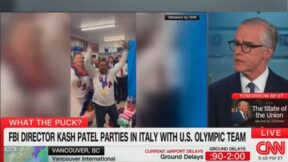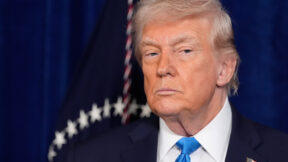NYT Public Editor Defines Plagiarism for Idiots
 Journalistic plagiarism is dominating the news cycle lately: last week, a prominent BuzzFeed writer was canned for extensive plagiarism during his tenure, a sitting U.S. senator is in danger of losing his degree for copying most of his thesis from unattributed sources, and now, a New Yor Times reporter Carol Vogel is under review after FishbowlNY discovered that she’d taken a lede from Wikipedia.
Journalistic plagiarism is dominating the news cycle lately: last week, a prominent BuzzFeed writer was canned for extensive plagiarism during his tenure, a sitting U.S. senator is in danger of losing his degree for copying most of his thesis from unattributed sources, and now, a New Yor Times reporter Carol Vogel is under review after FishbowlNY discovered that she’d taken a lede from Wikipedia.
The latter two cases are pretty straightforward instances of plagiarism, and in a column for the Times, public editor Margaret Sullivan agreed that her company’s reporter should be investigated, though not fired (unless Vogel displayed “a widespread pattern” of plagiarism). But with regards to Johnson, does his example matter — especially if he mostly plagiarized to write silly listicles?
It’s pretty simple, at BuzzFeed or at The New York Times: Write your own stuff; when you can’t or won’t, make sure you attribute and link. Use multiple sources; compare, contrast, verify.
That was straightforward.
(Sullivan also added that while it was easier to plagiarize sentences in the era of digital journalism, it was also easier to uncover said plagiarism by “comparing those sentences with a digital search.” In short — plagiarizing journalists will get caught, and it’s only a question of when.)
UPDATE — 12:54 PM EST: So yeah, apparently Sullivan forgot to link to one important source. That source: the guys who caught Johnson’s plagiarism in the first place!
"Make sure you attribute and link," says NYT's @Sulliview in column failing to do either pic.twitter.com/jMFxm2ZL2h
— Horton (@crushingbort) July 30, 2014
[NYT]
[Image via Shutterstock]
—
>> Follow Tina Nguyen (@Tina_Nguyen) on Twitter
This is an opinion piece. The views expressed in this article are those of just the author.
New: The Mediaite One-Sheet "Newsletter of Newsletters"
Your daily summary and analysis of what the many, many media newsletters are saying and reporting. Subscribe now!






Comments
↓ Scroll down for comments ↓